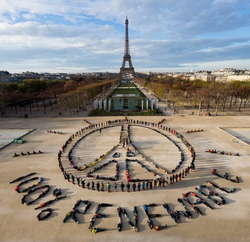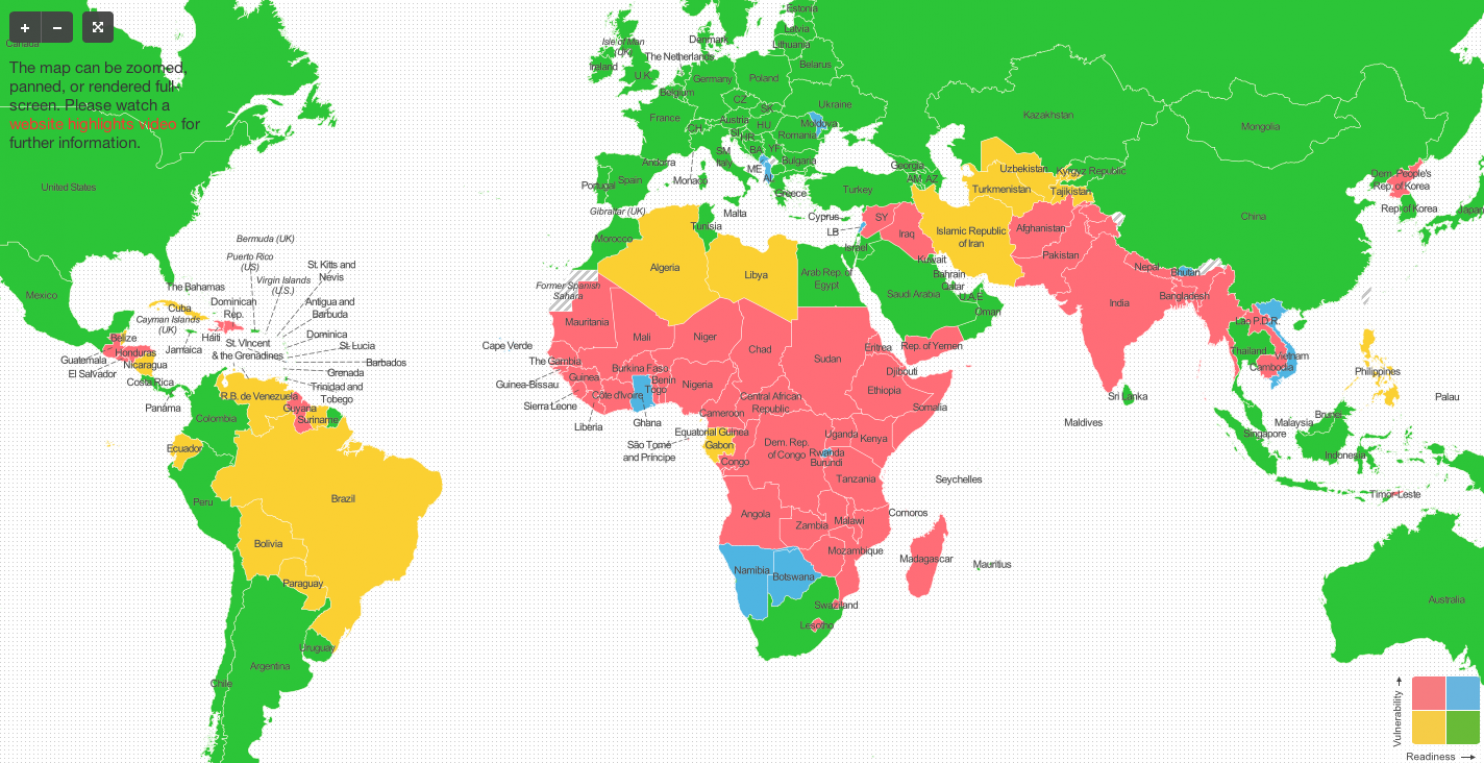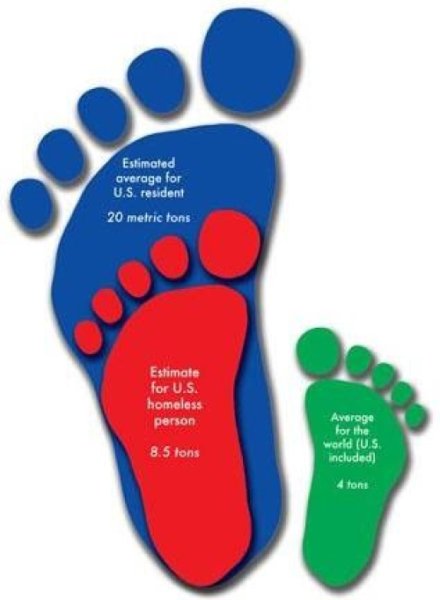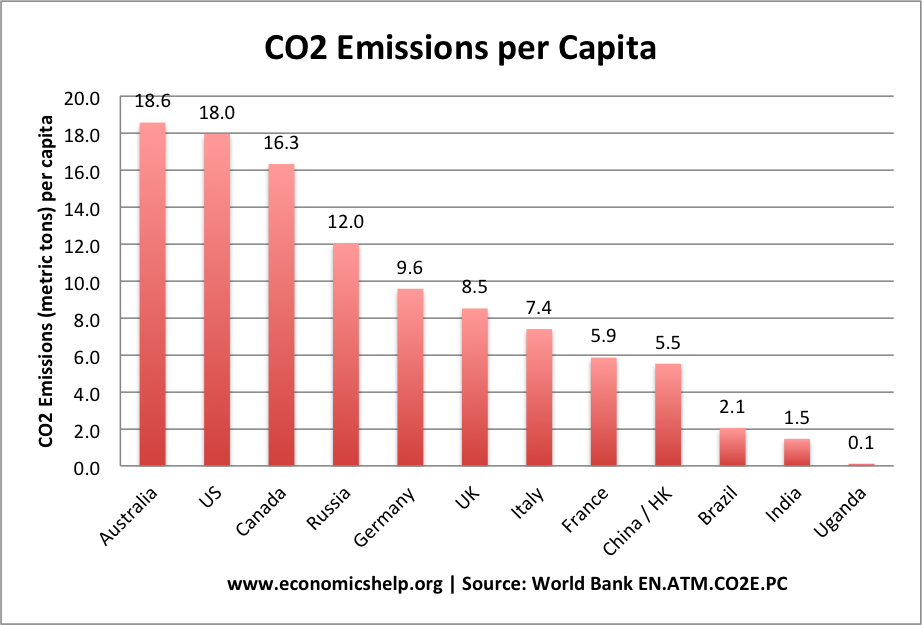Take the Carbon Diet Quiz.
|
Table of Contents (TOC)
Here is the link to the Table of Contents (ToC). If you are ABSENT, look at the TOC to see if pages have been added. You are responsible for keeping your notebook up to date. Left-hand pages are ones that are student-thinking and this must be your own work. Right-hand pages are group or teacher-directed and can be photocopied using the class photocopier. Table of Contents (TOC) 17/18 Task You are a student who is concerned about global warming and want to come up with a plan in your life and inspire your community to take climate action now! Big Aha! What causes global warming and how can you use that knowledge to design a process to reverse global warming? Focus Questions
Enduring Understanding |
|
Vocabulary
English Language Learners you need to know the vocabulary with the asterisks (*).
Here are some bonus (advanced) words marked with an exclamation mark (!) if you want to stretch your vocabulary and understanding.
Here are some bonus (advanced) words marked with an exclamation mark (!) if you want to stretch your vocabulary and understanding.
|
Adapt (Adaptation)
Albedo (!) Air* Atmosphere* Carbon* Carbon Cycle* Carbon Dioxide (CO2)* Carbon Dioxide Equivalent (CO2e) Carbon Footprint* Carbon Sequestration Carbon Sinks or Carbon Reservoirs Cause & Effect* Certainty Climate* Climate Change* Climate Emergency / Crisis/ Chaos / Disruption* Climatology (Climatologist)* Climate Chaos (!) Conductor Cyclone |
Drought
Emissions Evidence* Extremes Feedback Loop (Positive & Negative) Fossil Fuel* Flood (Flooding) Frontline communities (!) Gases* Glacier* (Glaciation) Global Average Temperature Global Warming* Greenhouse Effect* Greenhouse Gas* (GHG) Greenhouse Gas Equivalent (!) Habitat* Heat* Hurricane Iceberg* Insulator Mass |
Methane
Migration Mitigation* Organisms* Permafrost Phenology (!) Radiation Renewable Energy Resilience Sea Level Rise Social Justice Sun* Temperature* Thermal Energy* Tipping Point (!) Transfer Typhoon Vulnerabie (Vulnerability) Weather* Wildfires |
Videos
|
|
Waste Reduction
How to reduce fast food waste by the Environmentals Earth Overshoot Day - Calculate what day you have used more resources than the Earth can replenish, then make a plan on how to change |
King Tides
King Tides are the highest tides of the year. There is an increasing interest in King Tides because the high water levels may give us a picture of what our coast lines may look like with sea level rises due to climate change. We are documenting our coastline as part of a citizen science project.
REVISIONS ADD IN MORE ON SEA LEVEL RISE and Modeling
- understanding Global Change with global change icons - can do online or as a group on paper
- Relative sea level trends
- Sea level rise thermal expansions
- Italy's Careser Glacier between 1933 & 2012
- Sea Ice in Summer 2017
Can use local in Understanding global change for test - using interactive tools
- understanding Global Change with global change icons - can do online or as a group on paper
- Relative sea level trends
- Sea level rise thermal expansions
- Italy's Careser Glacier between 1933 & 2012
- Sea Ice in Summer 2017
Can use local in Understanding global change for test - using interactive tools
Lessons
Lesson 0: Setup Notebook and Phenomena
Finish Chasing Ice. Return Notebooks.
Day 1 (Feb. 24) - Garden Time 30 min. & new ToC & setup notebook
Day 2 (Feb. 25) Phenomenon (See day 1) & Garden time - NEXT year Day 1 & 3 would be one day without garden time
Day 3 (Feb. 26/27) - Global Warming & Climate Change (see Day 1) & Garden Time
Day 4 (Feb. 28) - Weather vs. Climate Tweets & 10-Day Forecast
Day 5 (March 3/4) - Revisit tweets, Climate Regions & 4 Corners
March 3 - SUB- Chasing
Lesson 1: Carbon Dioxide & Air Temperature
Day 6 (March 5) - 4 corners (Day 5) & Carbon Cycle and CO2 Data - 2020: 4 Corners & start CO2 Data
March 9 - Garden Stewardship - pulling out plants, wheat & popcorn breeding & planting KQED Climate change & agriculture video to 5:45 min. & Big Ahas!- to 5:45 min .
Day 7 (March 10) - Finish CO2 Data CER
March 11/12 - Garden/ Big Aha! time
Day 8 (March 13 - SUB) - CO2 in the Air & Carbon Footprint - students go to http://www.footprintcalculator.org/ - It's okay if you don't know the answers to some questions. Do your best guess. The main thing is to see how different choices impact the amount of carbon dioxide your lifestyle creates.
Day 9 (March 17) - Revisit Four Corners & Debrief Carbon Footprint - Impacts of Climate Change on Biodiversity video & Devastating Effects of Climate Change video - ADD in Temperature Anamolies video and a Walk and Talk CO2 Data. Man vs. Earth video
Not updated below this line...
Lesson 2: Greenhouse Gases & Impacts
Day 8 (March 20/21) - Introduce Reversing Global Warming Action Plan & Greenhouse effect and sources of Greenhouse Gases
Day 9 & 10 (March 24/25 & 25/26) - Greenhouse Gas CER & Week 2 Drawdown
Day 11 (March 27/28) - Sea Level Rise CER. While waiting for ice to melt, explore this site. Answer questions on back of task card. Check out this link: Sea Level Rise Explorer NOAA & Marin Sea Level Rise
Day 15 (March 29 - short period) - Reading about Climate change and Agriculture & Work on End of Unit CER; Homework: Get a family member to sign off that you taught them about the impacts of climate change on agriculture in your notebook.
Day 12 (April 1) - Arctic Impact - GROUP CER Look at this RESOURCE. Recorder Reporter: Make a COPY OF THIS. Print out a copy for all members when done.
Day 13 (April 2) - Explore Drawdown.Ecochallenge.org --> "Join" --> Hall Middle School --> cougars. Week 3 Drawdown - Discuss Field Trip
April 3 - Field Trip
Day 14 (April 4 - Period 4 & 5 and April 5 - Period 3- short period!) - Continue to write Arctic Impact - GROUP CER. When done, print at home. If you don't have a printer, print at school.
April 5 (short period - spirit week) - Explore Drawdown.Ecochallenge.org --> "Join" --> Hall Middle School --> cougars. - Periods 4 & 5; period 3 - arctic
Day 16 (April 15) - Week 4 Drawdown; Building a Movement Greta's talk - Student Ideas
Lesson 3: Summative Task
Next year: Climate Debate & Arctic Impact Group CER part of summative task
Day 17 (April 16) - Climate Impact Seminar (Debate) & Thermalhaline circulation
Day 18 (April 17/18) - Work on Building a Movement; Start TOC next unit
Finish Chasing Ice. Return Notebooks.
Day 1 (Feb. 24) - Garden Time 30 min. & new ToC & setup notebook
Day 2 (Feb. 25) Phenomenon (See day 1) & Garden time - NEXT year Day 1 & 3 would be one day without garden time
Day 3 (Feb. 26/27) - Global Warming & Climate Change (see Day 1) & Garden Time
Day 4 (Feb. 28) - Weather vs. Climate Tweets & 10-Day Forecast
Day 5 (March 3/4) - Revisit tweets, Climate Regions & 4 Corners
March 3 - SUB- Chasing
Lesson 1: Carbon Dioxide & Air Temperature
Day 6 (March 5) - 4 corners (Day 5) & Carbon Cycle and CO2 Data - 2020: 4 Corners & start CO2 Data
March 9 - Garden Stewardship - pulling out plants, wheat & popcorn breeding & planting KQED Climate change & agriculture video to 5:45 min. & Big Ahas!- to 5:45 min .
Day 7 (March 10) - Finish CO2 Data CER
March 11/12 - Garden/ Big Aha! time
Day 8 (March 13 - SUB) - CO2 in the Air & Carbon Footprint - students go to http://www.footprintcalculator.org/ - It's okay if you don't know the answers to some questions. Do your best guess. The main thing is to see how different choices impact the amount of carbon dioxide your lifestyle creates.
Day 9 (March 17) - Revisit Four Corners & Debrief Carbon Footprint - Impacts of Climate Change on Biodiversity video & Devastating Effects of Climate Change video - ADD in Temperature Anamolies video and a Walk and Talk CO2 Data. Man vs. Earth video
Not updated below this line...
Lesson 2: Greenhouse Gases & Impacts
Day 8 (March 20/21) - Introduce Reversing Global Warming Action Plan & Greenhouse effect and sources of Greenhouse Gases
Day 9 & 10 (March 24/25 & 25/26) - Greenhouse Gas CER & Week 2 Drawdown
Day 11 (March 27/28) - Sea Level Rise CER. While waiting for ice to melt, explore this site. Answer questions on back of task card. Check out this link: Sea Level Rise Explorer NOAA & Marin Sea Level Rise
Day 15 (March 29 - short period) - Reading about Climate change and Agriculture & Work on End of Unit CER; Homework: Get a family member to sign off that you taught them about the impacts of climate change on agriculture in your notebook.
Day 12 (April 1) - Arctic Impact - GROUP CER Look at this RESOURCE. Recorder Reporter: Make a COPY OF THIS. Print out a copy for all members when done.
Day 13 (April 2) - Explore Drawdown.Ecochallenge.org --> "Join" --> Hall Middle School --> cougars. Week 3 Drawdown - Discuss Field Trip
April 3 - Field Trip
Day 14 (April 4 - Period 4 & 5 and April 5 - Period 3- short period!) - Continue to write Arctic Impact - GROUP CER. When done, print at home. If you don't have a printer, print at school.
April 5 (short period - spirit week) - Explore Drawdown.Ecochallenge.org --> "Join" --> Hall Middle School --> cougars. - Periods 4 & 5; period 3 - arctic
Day 16 (April 15) - Week 4 Drawdown; Building a Movement Greta's talk - Student Ideas
Lesson 3: Summative Task
Next year: Climate Debate & Arctic Impact Group CER part of summative task
Day 17 (April 16) - Climate Impact Seminar (Debate) & Thermalhaline circulation
Day 18 (April 17/18) - Work on Building a Movement; Start TOC next unit
Communities Most Vulnerable to Climate Change
Image: The countries most vulnerable to climate change in 3 maps, The Washington Post
Teacher Resources
Coming soon... late February or early March.
2015-2016 Lesson Plans
Face, Place, Story: The Stories & Science of Climate Change
Below are some of the lessons I taught in 2015-2016. This was recorded by the Buck Institute of Education and featured in a Project Based Learning book. While teaching this unit, I read about Project Drawdown and was inspired to change the focus on mitigation and putting a human face on the impacts of climate change to strategies to reverse global warming . I have kept these resources up since they were featured and may be of value to some. However, I am putting all of my effort in to energies to reverse global warming so I have switched the curriculum significantly (above & see project page) to focus on Drawdown.
- Climate Change Animation Shows Devastating Effects- video
- How do Greenhouse Gases Actually Work? - Video and notes; watch twice (1st time just watch; 2nd time class takes notes)
Day 3
Materials: None
Focus Question: Are greenhouse gases good or bad?
Journal Reflection: Are greenhouse gases good or bad?
Climate - Bill Nye video
Climate Science What you Need to Know - video
Day 4
Materials: Climate Region handouts, textbooks or computers for research, colored pencils
Focus Question: How do we describe different climate regions of the world?
- Climate Region maps notes - look at textbook or on-line to describe different climate regions; include several descriptors and a drawing representing the climate region
Day 5
Materials: FOSS Climate Change Headline Cards, Headline Cards Directions & Headline Card Questions
Focus Question: What are some of the impacts of climate change?
- Pass out FOSS Climate Change Headline Cards
- Students sort set of 24 headline cards into categories
- Answer Headline Card Questions - citing evidence (give card number too for easy reference) - did as a class
Day 6 (Block)
Materials: computers for last few half hour (1/group), FOSS Climate Change Headline Cards, Headline Cards Directions & Headline Card Questions
Focus Question: What is a location in the world that is currently experiencing visible signs of climate change that your group is interested in learning about?
- Finish answering Headline Card Questions - citing evidence (give card number too for easy referen
- Go to Google Classroom. Have ONE person per group make a copy of the "FPS PBL Sushi Location" document. Rename it with your group members' names and class period. Ex. "FPS PBL Sushi Location P6 Mike Thuy Kavika". Share with all members and teacher with "can edit" privileges.
- Select an area of the world that is being impacted by climate change. Make sure it passes the SUSHI test.
Day 7
Materials: FPS Climate Change Location Research, computers, library book cart
Focus Question: What is the climate of your region and how is climate change expected to affect it?
- Make sure all groups have passed the Sushi Location Test
- Have ONE student make a copy of "FPS Climate Change Location Research". Rename it with your group members' names and class period. Ex. "FPS Climate Change Location Research P6 Mike Thuy Kavika". Put it in your shared folder.
- Research on computers about location
Day 8
Materials: FPS Climate Change Location Research, computers, library book cart
- Continue research on computers about location
Day 9
Materials: Dissection of disaster, computers (or provide a hard copy of the handout and have library books or textbooks), library books
Focus Question: How do the meteorological natural disasters that affect your location formed and how are they affected by climate change?
- Decide on one type of natural disaster that you will research to discover how it is formed and how climate change impacts it. NOTE: Your poster is about the type of natural disaster and NOT about the location. However, you are welcome to make the connection to your location.
- Have ONE group member make a copy of the "Dissection of a disaster" include your names and period on the document. Ex. "Dissection of a disaster P6 Mike Thuy Kavika". Put it in your shared folder.
- Research Disaster
Day 10
Materials: Dissection of disaster, computers (or provide a hard copy of the handout and have library books or textbooks), library books, Dissection of a Disaster Feedback Forms (there are two feedback forms/sheet so make about the same number as kids in your class and this will allow for two feedback cycles)
Focus Question: How do the meteorological natural disasters that affect your location formed and how are they affected by climate change?
- Research Disaster - 30 minutes
- Cycle One: Decide who will be the first presenter. Have presenter collect 3 Feedback forms.
- All other group members will move counter-clockwise one table to hear other presentations. Feedback forms stay with the presenter.
- Cycle Two: Decide who will be the second presenter. Have presenter collect 3 Feedback forms.
- All other group members will move counter-clockwise one table to hear other presentations. Presenter one will join group. Feedback forms stay with the presenter.
Day 11
Materials: Poster paper, colored pencils, water colors, library books
Focus Question: How do the meteorological natural disasters that affect your location formed and how are they affected by climate change?
Review Feedback Forms.
Make additions/corrections to rough draft.
Create your Dissection of a Disaster poster.
Homework: Sophia: Introduction to Climate Change - due by Saturday
Day 12
Materials: Poster paper, colored pencils, water colors, library books, Feedback Forms
Focus Question: How do the meteorological natural disasters that affect your location formed and how are they affected by climate change?
- Work on posters.
Day 13 (Block)
Materials: Dissect a Disaster Final Draft Feedback, Dissect a Disaster GROUP Self Grade - Final (photocopied on color paper), Dissect a Disaster SELF Reflection
- Finish Posters - 10 minutes
- Dissect a Disaster - GROUP Self Grades
- Poster Presentations
- Cycle One: Decide who will be the first presenter. Have presenter collect 3 Feedback forms.
- All other group members will move counter-clockwise one table to hear other presentations. Feedback forms stay with the presenter.
- Cycle Two: Decide who will be the second presenter. Have presenter collect 3 Feedback forms.
- All other group members will move counter-clockwise one table to hear other presentations. Presenter one will join group. Feedback forms stay with the presenter.
- Staple feedback form to posters. Put your GROUP's Self grades (colored sheet) on the top of the feedback forms.
- Dissect a Disaster SELF Reflection
Day 14
Materials: Probe: Ecosystem Cycles, Carbon Cycle Dice, Carbon Cycle Station cards, Carbon Cycle Game Directions
Focus Question: How does carbon move through the ecosystem?
Homework: Do Carbon Footprint Quiz. (Must be a device that allows Adobe Flash.) This is one of the best ones out there. You must do it to the best of your ability. If you don't know the information, you can put in a number based on your best guess. Print out results or take a screenshot and email to yourself and print at school.
Day 15 (Block Day)
Materials: Carbon Cycle Comic, colored pencils, Probe: Carbon Footprint (student version), Probe: Carbon Footprint (LCD)
Materials: Probe: Ecosystem Cycles, Carbon Cycle Dice, Carbon Cycle Station cards, Carbon Cycle Game Directions
Focus Question: How does carbon move through the ecosystem?
- Probe: Ecosystem Cycles
- Carbon Cycle Game - Collect data in your journal. Number 1-7. You will roll the dice 7 times. Record your answers. These will serve for the basis of your Carbon Cycle Comic.
- What's the Deal with Carbon? - video
Homework: Do Carbon Footprint Quiz. (Must be a device that allows Adobe Flash.) This is one of the best ones out there. You must do it to the best of your ability. If you don't know the information, you can put in a number based on your best guess. Print out results or take a screenshot and email to yourself and print at school.
Day 15 (Block Day)
Materials: Carbon Cycle Comic, colored pencils, Probe: Carbon Footprint (student version), Probe: Carbon Footprint (LCD)
- Probe: Carbon Footprint
- Carbon Footprints Quiz results - put in science notebook. Write a reflection.
- Reflect on Probe: Ecosystem Cycles. Which student do you now most agree with?
- Carbon Cycle Comics - use your situations from yesterday to help create how your atom of carbon moved through the carbon cycle. Full color. No stick figures. Don't just tell where your carbon atom went. Also include the processes, ex. photosynthesis, respiration (exhale CO2 = breath out), defecate (poop), died and decomposed.
 Aerial art at the Paris COP21 talks in 2016. The art piece by John Quigley and photographer Yann Arthur Bertrand. It was done in collaboration with my friend Magalie Bonneau-Marcil. COP stands for Conference of Parties and the 21 means this is the twenty-first time they have met to discuss climate change.
Aerial art at the Paris COP21 talks in 2016. The art piece by John Quigley and photographer Yann Arthur Bertrand. It was done in collaboration with my friend Magalie Bonneau-Marcil. COP stands for Conference of Parties and the 21 means this is the twenty-first time they have met to discuss climate change.
Day 16
Materials: LCD Projector for videos
Materials: LCD Projector for videos
- Take out Carbon Cycle Comic. Where is there a reference to 350 PPM? What does it mean?
- 350 animation - video; Discuss and rewatch with verbal explanations.
- Current level of carbon dioxide - record on comic & turn in Carbon Cycle Comic
- Carbon dioxide levels over the course of a year - NASA video
- Moving Together & 350 eARTh Climate Change Art Visible from Space - videos
- "Tell Them We Are Nothing Without Our Islands" - Marshall Islands Poet to UN Climate Summit - video AND Fighting Climate Change with Poems - Kathy Jetnil-Kijiner; Which do you think is more powerful? Are both together more helpful?
- Reflection
|
Day 17
Materials: Textbooks, Carbon Cycle diagram (accommodation), Carbon Cycle video - that goes with diagram for sick kids Focus Question: What are carbon sinks and carbon sources? * Ocean Acidification by Alliance for Climate Education - video * NASA - Keeping Up with Carbon - video; Watch twice; first time just watch; 2nd time take notes * Carbon Cycle Diagram: Textbook p. 418-419. Draw the carbon cycle. Additional ResourceHomework: Climate Change TOC notebook check on Block day. Self grade tonight. Make up missed work. Finish Carbon Cycle Diagram. Day 18 Materials: whiteboards (one per table), whiteboard pens Focus Question: What can we do about climate change?
|
Day 19 (BLOCK Day)
Materials: Minilab: CO2 and Ocean Temperatures (LCD); (Per group): 500 ml graduated cylinder, funnel, petri dish cover, transparent basin, ice cubes/ cold water, water heater/warm water, effervescent (fizz) tablets (2/group), Shrink Your Carbon Footprint
Focus Question: How does temperature affect the solubility of CO2 in the ocean?
Day 20
Materials: Shrink Your Carbon Footprint Action Plan (get assignment on Google Classroom)
Day 21
Materials: None
Day 22
Materials: End of Project Reflection
Day 23
Focus Question: How can you change behavior and inspire the world?
The Fun Theory - Piano Staircase - video
The Fun Theory 3 - Bottle Bank Arcade - video
Materials: Minilab: CO2 and Ocean Temperatures (LCD); (Per group): 500 ml graduated cylinder, funnel, petri dish cover, transparent basin, ice cubes/ cold water, water heater/warm water, effervescent (fizz) tablets (2/group), Shrink Your Carbon Footprint
Focus Question: How does temperature affect the solubility of CO2 in the ocean?
- Notebook Check
- Minilab: CO2 and Ocean Temperatures (LCD)
Day 20
Materials: Shrink Your Carbon Footprint Action Plan (get assignment on Google Classroom)
- Create a personal Shrinking Your Carbon Footprint Action Plan! Go to Google Classroom for the Shrink Your Carbon Footprint Action Plan - Due on Tuesday.
- Gallery walk: Shrink Your Carbon Footprint Ideas
- Look over Shrink that Footprint site
Day 21
Materials: None
- Finish calculations and reflection from CO2 and ocean lab the other day
- Do the Math - Video
- 15-Year-Old Environmental Activist Suing the Government over Climate Change - video
- Xiuhtezcatl Matinez (Earthguardians) speaking and rapping on Youth, Music and Climate Change - video at COP21
Day 22
Materials: End of Project Reflection
- Google Classroom: End of Project Reflection
- Shrink your Carbon Footprint Reflection
- End of year circle
Day 23
Focus Question: How can you change behavior and inspire the world?
The Fun Theory - Piano Staircase - video
The Fun Theory 3 - Bottle Bank Arcade - video




